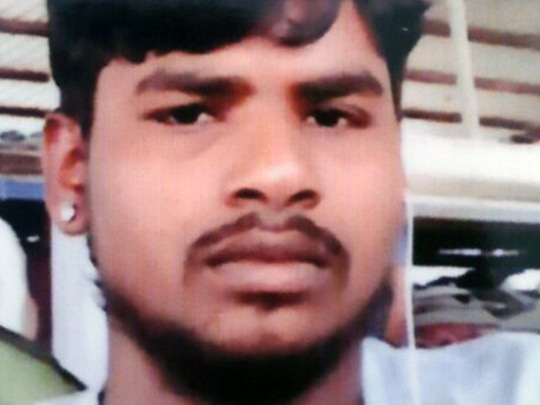
Abu Dhabi: The family of a 23-year-old Indian worker who allegedly committed suicide in Abu Dhabi in August has been waiting for their son’s body for almost 80 days.
Kandrakota Satish died on August 26 in Liwa in Al Dhafra region of Abu Dhabi. A copy of his death certificate, issued on September 24, cited the cause of death as “intentional self-harm by hanging, strangulation and suffocation”.
The deceased’s elder brother, Kandrakota Venkatesh, speaking to Gulf News on Monday from the South Indian state of Andhra Pradesh, said, “My brother’s workmate called us up a week after his death to give us the news. We are still waiting to hear when his body will be sent to us.”
Venkatesh said his brother left home for Abu Dhabi two years ago. “He got a job as a handyman at a shipyard and to work on boats. Occasionally, he would call us to say he is not being paid regularly.”
Venkatesh said that he often urged his brother to return home but Satish wanted to stay back. “His phone calls also became more infrequent as he said he could not afford to make them. We had no idea what he was going through.”
Satish’s father, devastated at the loss of his young son, is now bedridden due to shock. Satish’s family approached the local police in their district who said they would look into the matter but nothing had happened so far, said Venkatesh.
Satish, a resident of Rangampeta near Rajamundhry in Andhra Pradesh, is survived by his wife, his father and brother Venkatesh.
The deceased man’s employer told Gulf News that Satish’s salary was pending for only two months. The company approached the Indian Embassy, seeking assistance to reach his family in India on October 3, around five weeks after the death, as they had to wait for completion of the investigation into the unnatural death.
“Later, [the embassy] gave me the contact number of Satish’s family member in India. I tried to speak to that person with the help of another Indian worker who informed me that the family member only spoke in Telugu, Satish’s mother tongue. I reported this matter to the embassy but there was no further help or support,” said Mohammad Fareed, public relations officer (PRO) of Waves of Emirates Marine Equipment Maintenance.
However, the Indian Embassy told Gulf News on Tuesday that the PRO did not update the embassy about any difficulties in communicating with the deceased’s family or about the arrangement of an escort for the body.
The embassy received the contact details of Satish’s family from the Indian authorities on October 15 and passed them on to the company PRO on October 17.
“We understand that the company wanted to bury the body here. If they requested support on any issue, we could have made the arrangements for communication with the family and an escort for the body,” the embassy told Gulf News.
In coordination with the Telugu Association, a community organisation of expatriates from Andhra Pradesh, the embassy has arranged a volunteer to escort the body. Following this arrangement, the PRO told Gulf News that he is proceeding with the paper work and that the body would be repatriated within a week.
How embassy deals with dues of deceased workers
The Indian Embassy in Abu Dhabi ensures that unpaid salary and other dues to deceased workers are rendered in full by employers after the repatriation of the body.
Usually, employers pay the dues after the body is sent home. The employer has to submit an undertaking to the embassy during the death registration process that they have paid all dues and that if there are any pending salary, compensation or end-of-service benefits, they would pay it later.
In most cases, employers pay the dues after a while.
“If they deposit the money with the embassy, we send it to the respective district collector of the deceased person’s area of residence in India, who will hand it over to the legal heirs,” the embassy informed Gulf News. In rare cases, when the employers do not pay up, the embassy follows up the matter and if there are further delays, it takes it up with the local authorities. As a last resort, the family of the deceased can execute a power of attorney, authorising a relative in the UAE or the Indian Ambassador, to file a case in the court of law.
The embassy has an arrangement with a law firm to fight such cases. If the court verdict is favourable, the dues are paid to the family after deducting the legal fee, the embassy said.








